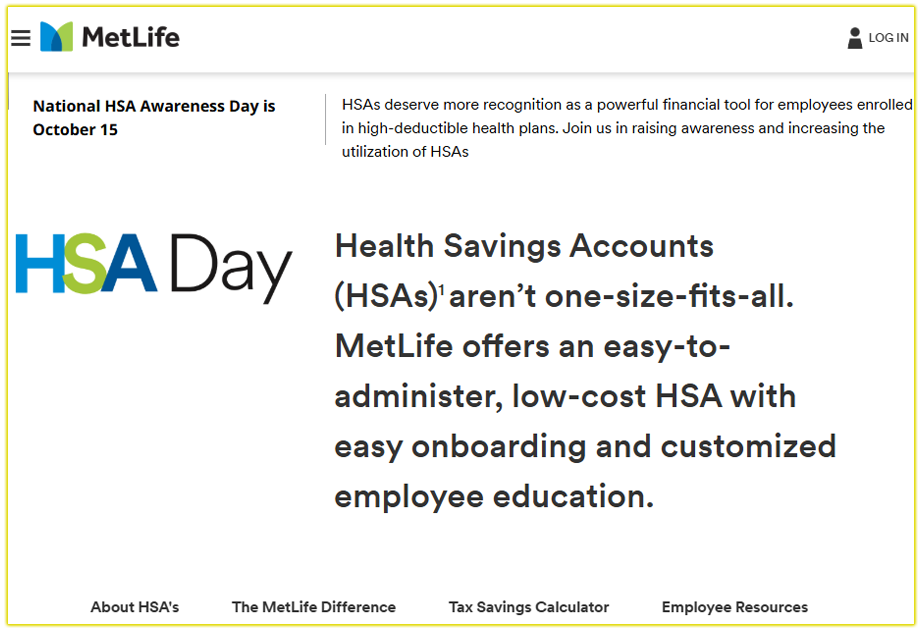As a self-employed individual, I’ve learned that managing healthcare costs is a critical part of running my business. Unlike traditional employees who might have employer-sponsored health plans, you and I need to navigate the healthcare landscape independently.
One powerful tool I’ve discovered is the Health Savings Account (HSA), a tax-advantaged account designed to help cover medical expenses.
In this article, I’ll walk you through what an HSA is, why it’s a game-changer for the self-employed, and how you can set one up to secure your financial and health future.
What Is a Health Savings Account (HSA)?
An HSA is a special savings account that allows you to set aside pre-tax dollars to pay for qualified medical expenses, such as doctor visits, prescriptions, and even dental or vision care.
I first came across HSAs when I enrolled in a High Deductible Health Plan (HDHP), which is a requirement to open one. The beauty of an HSA lies in its triple tax advantage, a feature that makes it stand out from other savings accounts.
- Tax-deductible contributions: The money you contribute to your HSA is deducted from your taxable income, lowering your tax bill.
- Tax-free growth: Any interest or investment gains in the account grow without being taxed.
- Tax-free withdrawals: When you use the funds for qualified medical expenses, you don’t pay taxes on the withdrawals.
For me, this was a revelation. As someone who’s self-employed, every tax break counts, and the Health Savings Account (HSA) offers a rare opportunity to save money while planning for healthcare needs.
You’ll find this especially helpful if you’re looking to reduce your taxable income while preparing for future medical costs.
Why HSAs Are Perfect for the Self-Employed
When I started my freelance business, I was overwhelmed by the cost of health insurance. Traditional plans were expensive, and I needed a way to manage healthcare costs without breaking the bank. That’s where the HSA came in. Here’s why I think it’s a perfect fit for self-employed individuals like you:
1. Flexibility in Healthcare Spending
As a freelancer, my income can fluctuate, and I need flexibility in how I handle expenses. An HSA lets you save money for medical costs and use it when you need it, there’s no “use it or lose it” rule like with a Flexible Spending Account (FSA).
I’ve used my HSA to cover everything from routine checkups to unexpected dental work, and the funds roll over year after year.
2. Tax Savings for the Self-Employed
You and I both know that self-employment taxes can be a burden. By contributing to an HSA, I reduce my taxable income, which means I keep more of my hard-earned money.
For 2025, the IRS allows individuals to contribute up to $4,300 and families up to $8,550 to an HSA. These limits are a great opportunity to lower your tax liability while building a healthcare safety net.
3. Long-Term Wealth Building
One of the most exciting aspects of an HSA is its potential as an investment vehicle. I was thrilled to learn that I could invest my HSA funds in stocks, bonds, or mutual funds, much like a 401(k).
The growth is tax-free, and if you use the funds for medical expenses, withdrawals are also tax-free. Some self-employed folks even use HSAs as a retirement tool by paying medical expenses out of pocket now and reimbursing themselves later, letting the account grow. You can adopt this strategy to build wealth over time.
4. Control Over Healthcare Costs
Being self-employed means you’re in charge of your business and your health. An HSA puts you in the driver’s seat by giving you control over how you spend your healthcare dollars.
I appreciate being able to shop around for cost-effective care or use my HSA to cover alternative treatments like acupuncture, as long as they qualify.
Does a Health Savings Account Rollover?
Eligibility for an HSA as a Self-Employed Individual
Before you rush to open an HSA, let’s make sure you’re eligible. I had to do some research to confirm I qualified, and here’s what I found:
- You must be enrolled in a High Deductible Health Plan (HDHP): For 2025, an HDHP is defined as a plan with a minimum deductible of $1,650 for individuals or $3,300 for families. The maximum out-of-pocket limit is $8,250 for individuals and $16,500 for families.
- You cannot have other health coverage: This includes Medicare or another non-HDHP plan. However, you can have supplemental coverage like dental or vision insurance.
- You cannot be claimed as a dependent: If someone else claims you on their tax return, you’re not eligible.
When I switched to an HDHP, I was initially worried about the high deductible, but the lower premiums and HSA tax benefits more than made up for it. You’ll want to weigh the pros and cons of an HDHP to see if it fits your healthcare needs.
Can You Use HSA for Eyeglasses?
How to Set Up an HSA
Setting up my HSA was easier than I expected, and I’m confident you can do it too. Here’s a step-by-step guide based on my experience:
- Enroll in an HDHP: Shop for an HDHP through the HealthCare.gov marketplace or a private insurer. I compared plans to find one with affordable premiums and a deductible I could manage.
- Choose an HSA Provider: You can open an HSA through a bank, credit union, or specialized provider like HealthEquity, Fidelity, or HSA Bank. I picked a provider with low fees and investment options to maximize my savings.
- Fund Your HSA: Contribute up to the annual limit ($4,300 for individuals or $8,550 for families in 2025). I set up automatic contributions to make it seamless, but you can also make one-time deposits.
- Track Your Expenses: Keep receipts for all medical expenses in case you need to reimburse yourself later. I use a digital folder to stay organized, and you might find apps like HSA Central helpful for managing your account.
- Invest Your HSA Funds: If your provider offers investment options, consider allocating some funds to grow your savings. I started with a small investment and gradually increased it as I got more comfortable.
Tips for Maximizing Your HSA
Over the years, I’ve picked up a few strategies to get the most out of my HSA, and I’m happy to share them with you:
- Pay Out of Pocket When Possible: If you can afford to cover medical expenses with cash or a credit card (to earn rewards), let your HSA funds grow tax-free. You can reimburse yourself years later as long as you have receipts.
- Use HSA Funds for a Wide Range of Expenses: Beyond doctor visits and prescriptions, HSAs cover things like contact lenses, sunscreen, and even some over-the-counter medications. Check the IRS guidelines to see what qualifies.
- Plan for Retirement: After age 65, you can withdraw HSA funds for non-medical expenses without penalty, though you’ll pay income tax. I see my HSA as a backup retirement fund, and you might want to consider this long-term benefit.
- Stay Informed About Contribution Limits: The IRS adjusts HSA limits annually, so keep an eye on updates to maximize your contributions.
Can You Use Health Savings Account (HSA) for Dental Expenses?
Common Misconceptions About HSAs
When I first explored HSAs, I encountered some myths that almost deterred me. Let’s clear up a few misconceptions so you can make an informed decision:
- Myth: HSAs Are Only for the Wealthy: Not true! I started with small contributions and still benefited from the tax savings. You can contribute as little or as much as your budget allows.
- Myth: You Lose HSA Funds If You Don’t Use Them: Unlike FSAs, HSA funds roll over indefinitely. I’ve carried a balance for years, and it’s there whenever I need it.
- Myth: HSAs Are Complicated: While there’s a learning curve, I found the process straightforward once I understood the basics. You’ll likely feel the same after setting up your account.
Health Savings Account vs. Flexible Spending Account
Why I Recommend HSAs for the Self-Employed
As a self-employed individual, I’ve found that a Health Savings Account (HSA) is one of the smartest financial tools at my disposal. It’s helped me manage healthcare costs, reduce my tax burden, and even plan for retirement.
For you, an HSA could provide the same peace of mind, especially if you’re juggling the uncertainties of self-employment. The combination of tax advantages, flexibility, and long-term savings potential makes it a no-brainer.
If you’re ready to take control of your healthcare expenses, I encourage you to explore HSAs further. Visit HealthCare.gov to find an HDHP or check out providers like HealthEquity or Fidelity to open your account. You can also consult IRS resources for detailed guidelines on contributions and qualified expenses.
By setting up an HSA, you’re not just saving for medical expenses—you’re investing in your financial future. I’ve seen the benefits firsthand, and I’m confident you will too. Have you considered an HSA for your self-employed journey?



